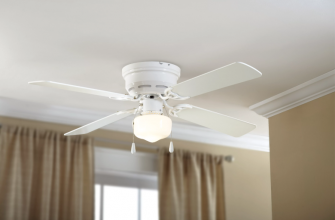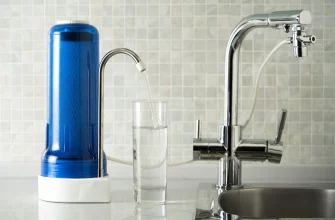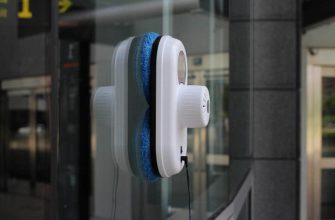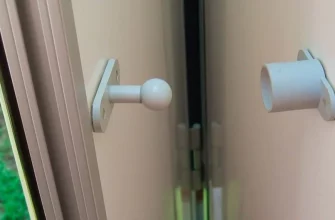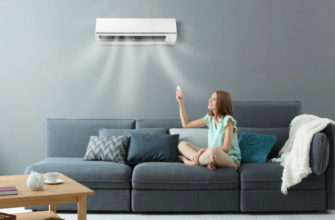Properly insulating a mobile home is crucial for comfort, energy efficiency, and affordability. With their lightweight construction and exposure to outdoor elements, mobile homes can easily lose heat in the winter and allow heat inside during the summer if not properly insulated.
This comprehensive guide will provide mobile home owners with key information on the different insulation techniques available. We’ll cover the importance of insulation, the different types of insulation materials, how to install insulation, and tips for maintenance and upgrades.
Insulating your mobile home is an investment that pays dividends through lower energy bills and greater comfort. By understanding the fundamentals of insulation and following the recommendations in this guide, you can create an energy-efficient and comfortable living space.
- The Importance of Proper Mobile Home Insulation
- Benefits of Effective Mobile Home Insulation
- Lower Heating and Cooling Bills
- Greater Temperature Regulation
- Less Condensation and Improved Air Quality
- Enhanced Durability and Lifespan
- Reduced Outside Noise
- Understanding Mobile Home Insulation
- Types of Insulation Materials for Mobile Homes
- Assessing Insulation Needs for Your Mobile Home
- Environmental and Cost Considerations
- Installing Mobile Home Insulation
- Preparing the Mobile Home for Insulation Installation
- Assessing Current Insulation Status
- Sealing Cracks and Gaps
- Different Techniques for Insulation Installation
- Installing Batt Insulation
- Blown-In Insulation Methods
- Foam Board Insulation Application
- Maintaining and Updating Mobile Home Insulation
- Insulation Inspection and Maintenance
- Signs of Insulation Wear and Tear
- Updating Insulation for Energy Efficiency
- Weatherproofing and Insulation
- Sealing Windows and Doors
- Insulating Ductwork
- Advanced Strategies for Mobile Home Insulation
- Energy-Efficient Heating and Cooling Systems
- Smart Home Insulation Technologies
- Professional Consultation and Upgrades
- Final Thoughts on Mobile Home Insulation
The Importance of Proper Mobile Home Insulation
There are several key reasons why properly insulating your mobile home is so important:
- Comfort: Effective insulation helps regulate indoor temperatures, keeping interiors warmer in winter and cooler in summer.
- Energy efficiency: Insulation prevents conditioned air from escaping outside and unconditioned air from entering. This reduces energy costs for heating and cooling.
- Moisture control: Insulation helps prevent condensation buildup inside walls that can lead to mold growth.
- Noise reduction: Insulation dampens sounds from outside the mobile home for a quieter indoor environment.
- Structural integrity: Insulation protects roof, floors, and walls from temperature extremes that can cause structural damage over time.
Considering these benefits, it’s clear that properly insulating your mobile home should be a top priority not only for comfort but also for savings on energy bills and protecting your investment.
Benefits of Effective Mobile Home Insulation
Installing quality insulation tailored to your mobile home can make your living space more comfortable while saving significantly on energy costs. Some key benefits include:
Lower Heating and Cooling Bills
Effective insulation reduces heat transfer and air leaks, allowing heating and cooling systems to work less to maintain comfortable temperatures. This translates into lower monthly energy bills.
Greater Temperature Regulation
Insulation creates a thermal barrier that keeps mobile homes cooler in summer and warmer in winter. This helps maintain steady, comfortable indoor temps year-round.
Less Condensation and Improved Air Quality
Insulation prevents moisture buildup within walls that can lead to mold growth. Proper ventilation is also critical for air quality.
Enhanced Durability and Lifespan
Insulation protects roof, walls, floors and plumbing from temperature extremes and moisture that can degrade materials and shorten lifespan.
Reduced Outside Noise
In addition to its thermal properties, insulation also dampens sounds from rain, wind, traffic and other external noise sources.
Considering these significant benefits, investing in quality insulation tailored for your mobile home is a smart decision.
Understanding Mobile Home Insulation
To choose the right insulation strategy, it helps to understand some key aspects of mobile home insulation.
Types of Insulation Materials for Mobile Homes
There are several types of insulation well-suited for mobile homes:
- Fiberglass batts: Flexible rolls or batts of spun fiberglass, ideal for walls, floors and ceilings.
- Spray foam: Foam sprayed into cavities that expands and seals cracks/gaps.
- Rigid foam boards: Sturdy foam boards, often used to insulate exterior walls or roofs.
- Loose-fill: Loose materials like fiberglass, rock wool, or cellulose that completely fill cavities.
Assessing Insulation Needs for Your Mobile Home
A key step is having an energy audit done to evaluate current insulation levels and identify areas needing improvement based on your climate and utility costs. An insulation contractor can help with recommendations.
Environmental and Cost Considerations
There are insulation options made from recycled materials for an eco-friendly choice. Also consider insulation cost, effectiveness, and ease of installation for your situation.
Installing Mobile Home Insulation
Proper installation techniques are vital for insulation to be effective. Here are some best practices:
Preparing the Mobile Home for Insulation Installation
It’s important to prep the space first for smooth insulation installation:
Assessing Current Insulation Status
Inspect current insulation in walls, floors, ceilings and ducts, noting any deficiencies or degradation.
Sealing Cracks and Gaps
Seal any cracks, gaps and penetrations with caulk or spray foam to prevent air leaks before installing insulation.
Different Techniques for Insulation Installation
Install methods vary based on insulation type and location. Common techniques include:
Installing Batt Insulation
Fiberglass batt installation in wall stud cavities, secured with staples and covered with vapor barriers.
Blown-In Insulation Methods
Loose-fill cellulose or fiberglass blown into ceiling and wall cavities using special equipment for a seamless fill.
Foam Board Insulation Application
Rigid foam boards bonded to roof sheathing or exterior walls to create an air-tight thermal barrier.
Maintaining and Updating Mobile Home Insulation
Proper insulation maintenance and upgrades over time are key for optimal efficiency.
Insulation Inspection and Maintenance
It’s important to periodically inspect insulation for any issues:
Signs of Insulation Wear and Tear
Look for sagging, gaps, moisture damage, and areas where insulation has shifted or settled over time.
Updating Insulation for Energy Efficiency
Adding insulation to meet new efficiency codes or to address problem areas to reduce air leaks and heat loss.
Weatherproofing and Insulation
Preventing air leaks also improves insulation effectiveness:
Sealing Windows and Doors
Use weatherstripping and caulk around windows and doors to reduce air leaks.
Insulating Ductwork
Insulate exposed ducts to maximize
Insulate exposed ducts to maximize efficiency and prevent condensation.
Advanced Strategies for Mobile Home Insulation
In addition to basic insulation, some advanced efficiency upgrades include:
Energy-Efficient Heating and Cooling Systems
Installing Energy Star rated furnaces, heat pumps and AC units tailored for mobile homes can dramatically cut energy costs.
Smart Home Insulation Technologies
Smart vents, radiant barriers and spray foams with built-in insulation value (R-value) measurement help ensure optimal efficiency.
Professional Consultation and Upgrades
Energy auditors and insulation contractors can evaluate your unique situation and recommend custom upgrades to address problem areas.
Final Thoughts on Mobile Home Insulation
Improving your mobile home’s insulation is one of the smartest investments you can make. The right insulation leads to greater comfort, lower energy bills, improved durability and enhanced air quality.
While basic batt or blown-in insulation may be sufficient for some, having an energy audit done and considering advanced sealing techniques and materials can maximize energy savings. And be sure to properly maintain and update insulation over time.
Using this comprehensive guide, you now have key information to make informed decisions on insulation strategies tailored to your mobile home. Proper installation combined with vigilant maintenance will keep your home comfortable and energy efficient for years to come.





